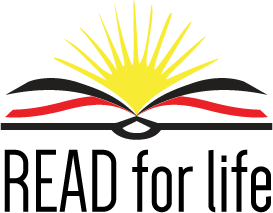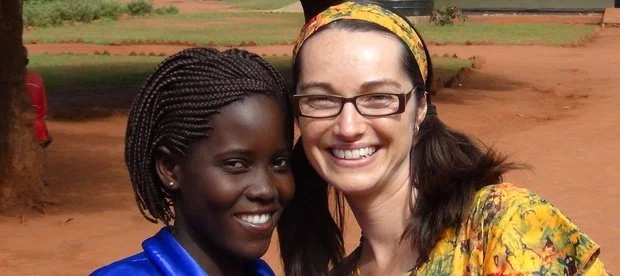Australian Teacher Magazine Titles Read For Life: "Uganda's Oz Phonic Tonic"
If the term ‘literacy angel’ could be applied to anyone, Australian teacher Jody Unterrheiner would be the perfect candidate.
Indeed for the hundreds of teachers and children hailing from Gulu in northern Uganda, Unterrheiner is offering new hope via her specially-designed The Fun of Phonetics curriculum.
Working alongside local educators, the driven teacher is single-handedly changing the way that reading and writing is taught, and slowly, low literacy levels are becoming a thing of the past.
"One of the millennium goals is that all children should be in school; however, just because children are in school doesn’t mean they are receiving a quality education,” Unterrheiner tells Australian Teacher Magazine.
“It’s quite surprising to see a child progress through school
for six years and learn very little. If they can’t read and write in their first couple of years, then accessing the curriculum becomes extremely difficult,” she adds.
After a stint volunteering at Layibi Techo Primary School in Gulu in 2013, Unterrheiner was moved to act when it became clear that the schools had no systematic way of addressing literacy from the get-go. Teachers, locked into an outdated curriculum and static “chalk and talk” approach to learning, were crying out for a solution.
“There’s a line in a Brooke Fraser song called Albertine that reads: ‘Now that I have seen I am responsible?’ Maybe I am responsible now? Responsible for the solutions and to do something about the current education black hole and equipping teachers with skills to teach children how to read and write is a good starting place,” Unterrheiner muses.
Now, three days a week, Unterheiner works to flesh-out that “black hole” by delivering targeted phonetics teacher-training sessions at primary schools across the impoverished region.
“With the help of Catherine (my local teacher colleague), and Rachel Buchanan, a teacher intern from Concordia University ... we wrote our own phonics songs for all the Set 1 sounds. These songs are mostly for the initial sounds children learn...” she explains.
But simply waltzing into classroom armed with flashcards and teaching manuals was not an option – tailoring resources to suit the Ugandan context was crucial, the educator says.
“I wanted to make a phonics program that was culturally sensitive. I found it quite weird to see kids singing about castanets (for the sound ‘c’) when Ugandan children had never seen a castanet and had no idea what one was...”
Now, even in the most rudimentary of classrooms (which often lack electricity and boast only a blackboard and slates for students to write on) The Fun ofPhonetics curriculum is breaking down learning barriers.
The results, Unterrheiner says, speak for themselves.
“I have seen a significant change in pupils’ literacy skills and also their engagement in the classroom, especially when teachers use an active approach to teaching phonics and using songs, actions and slates during their teaching.
“The biggest highlight is walking into a classroom and seeing children sounding out and reading words independently. Especially when I know where they have come from and how much progress they have made.”
Although planning to return to Australia at some stage in the future, the educator has bigger fish to fry first.
“My long-term goal for this project would be for it to be recognised by the Ministry of Education and the National Curriculum Development Committee and that phonics would become part of the national curriculum here.”
This story appeared in the October 2015 edition of Australian Teacher Magazine.

